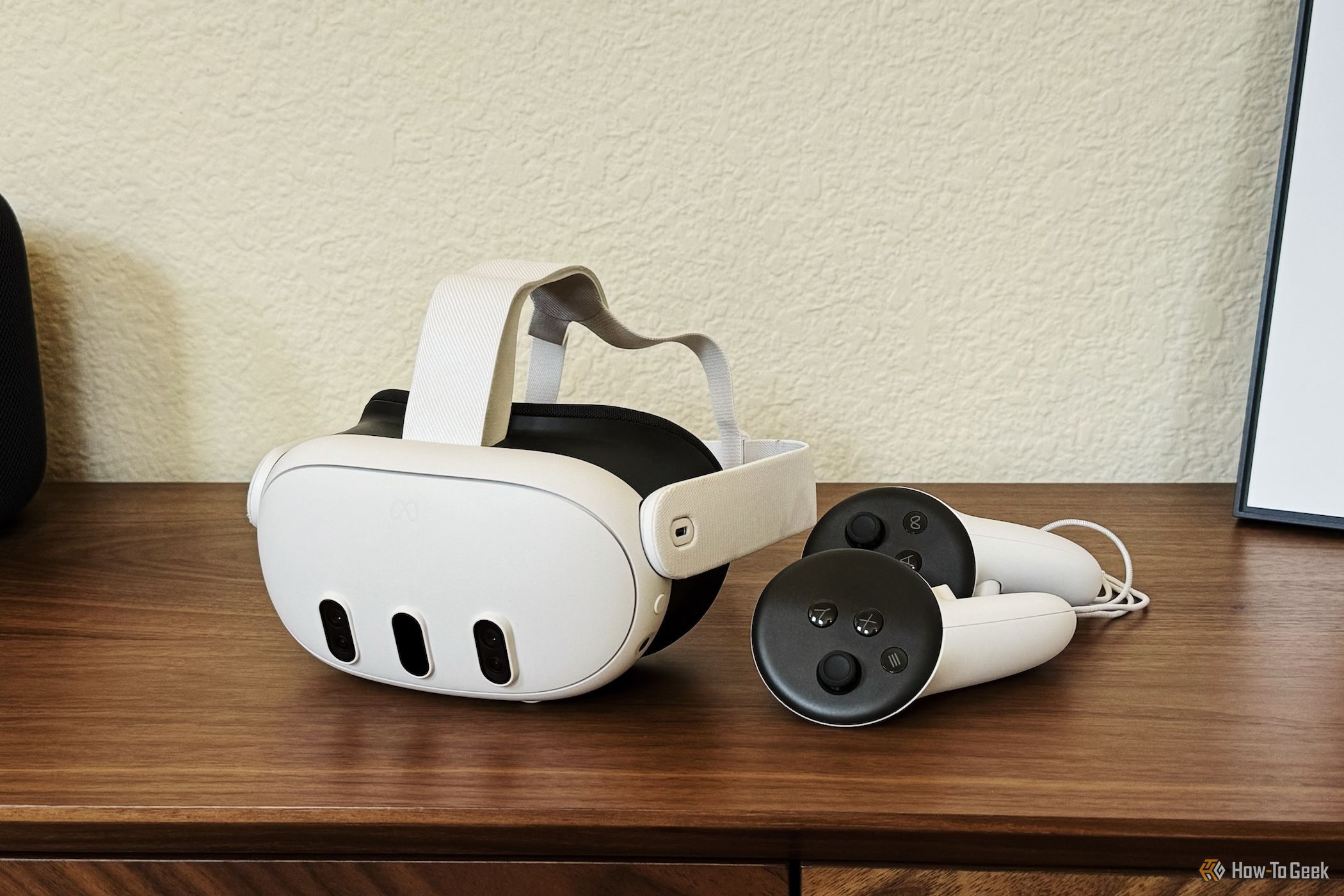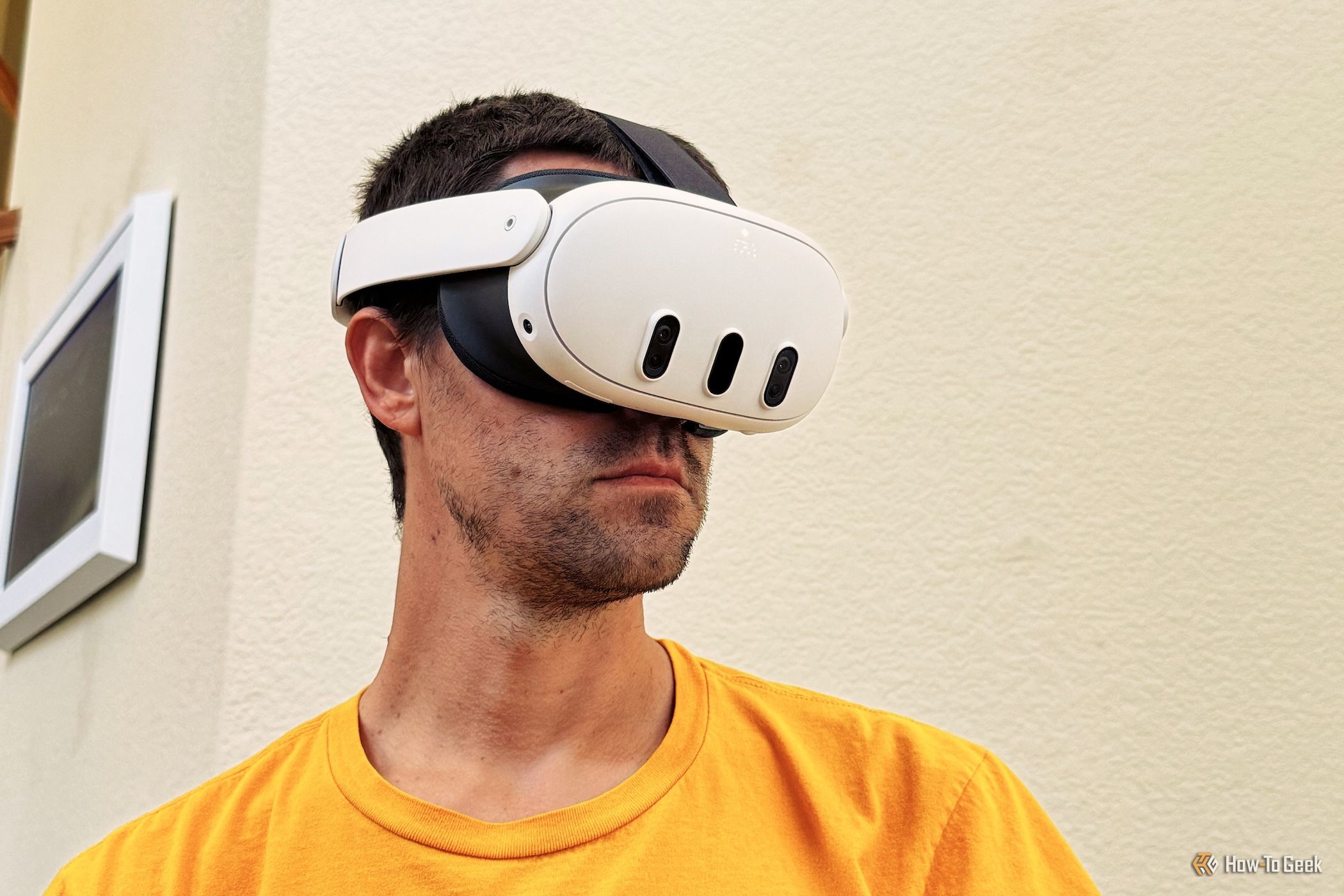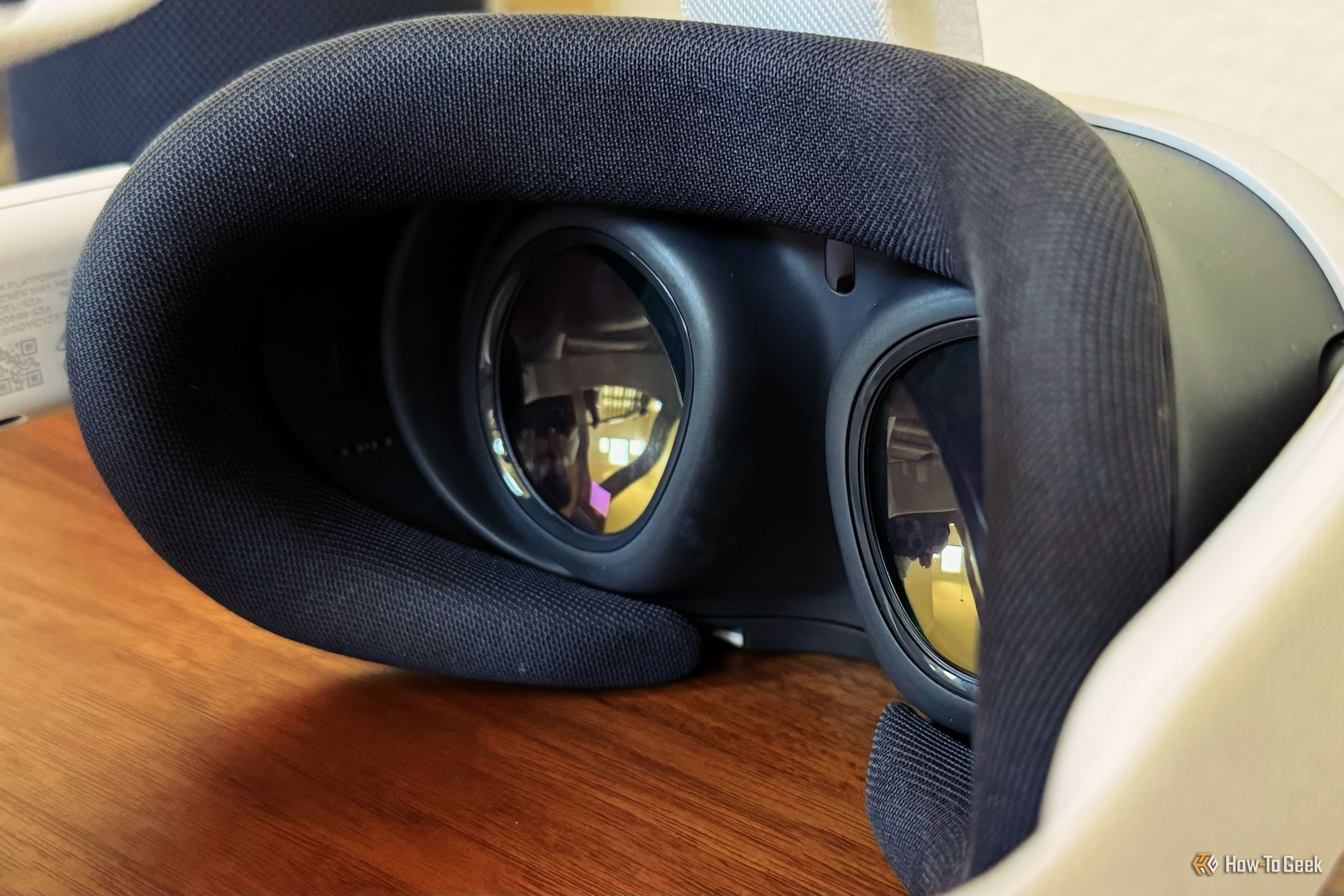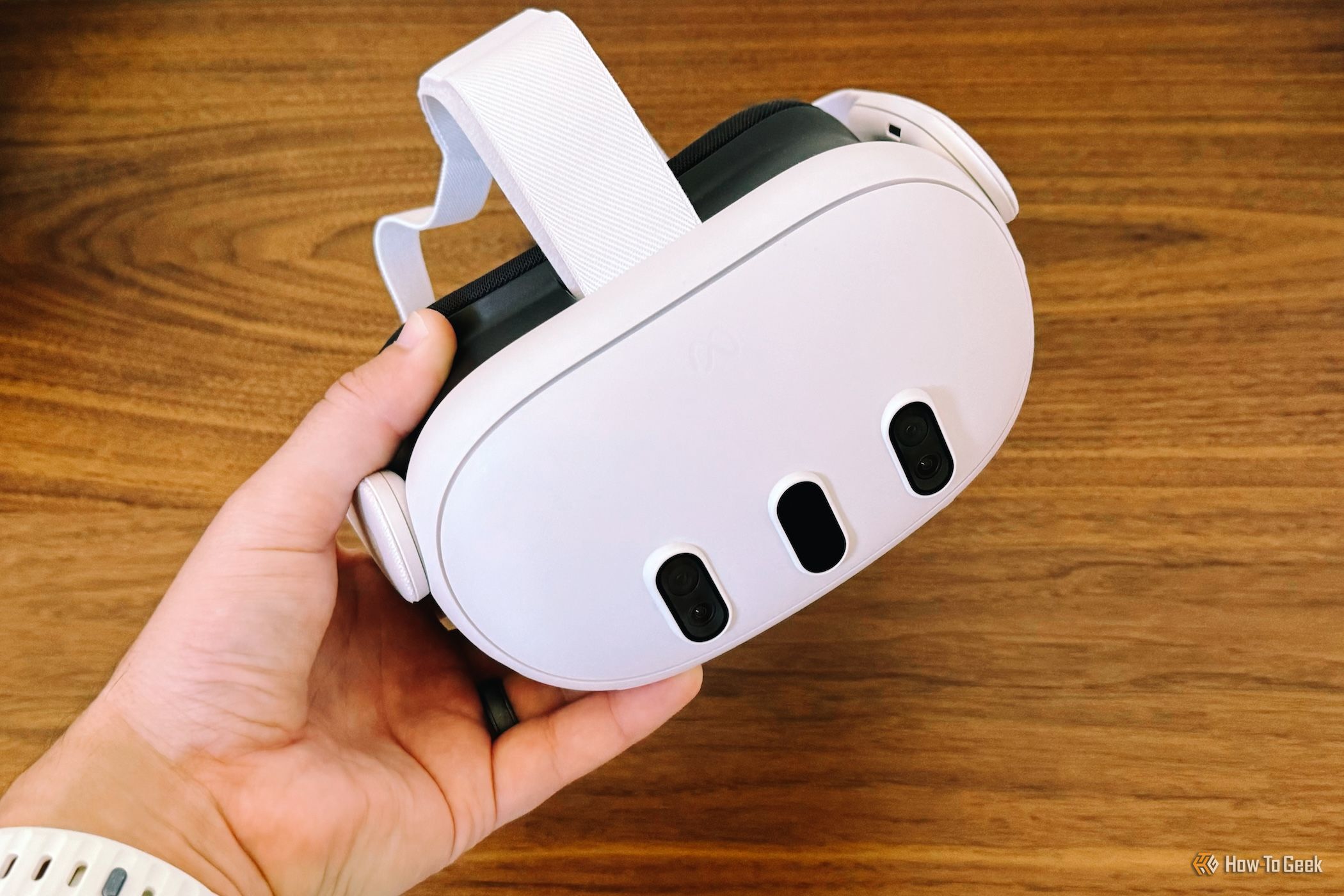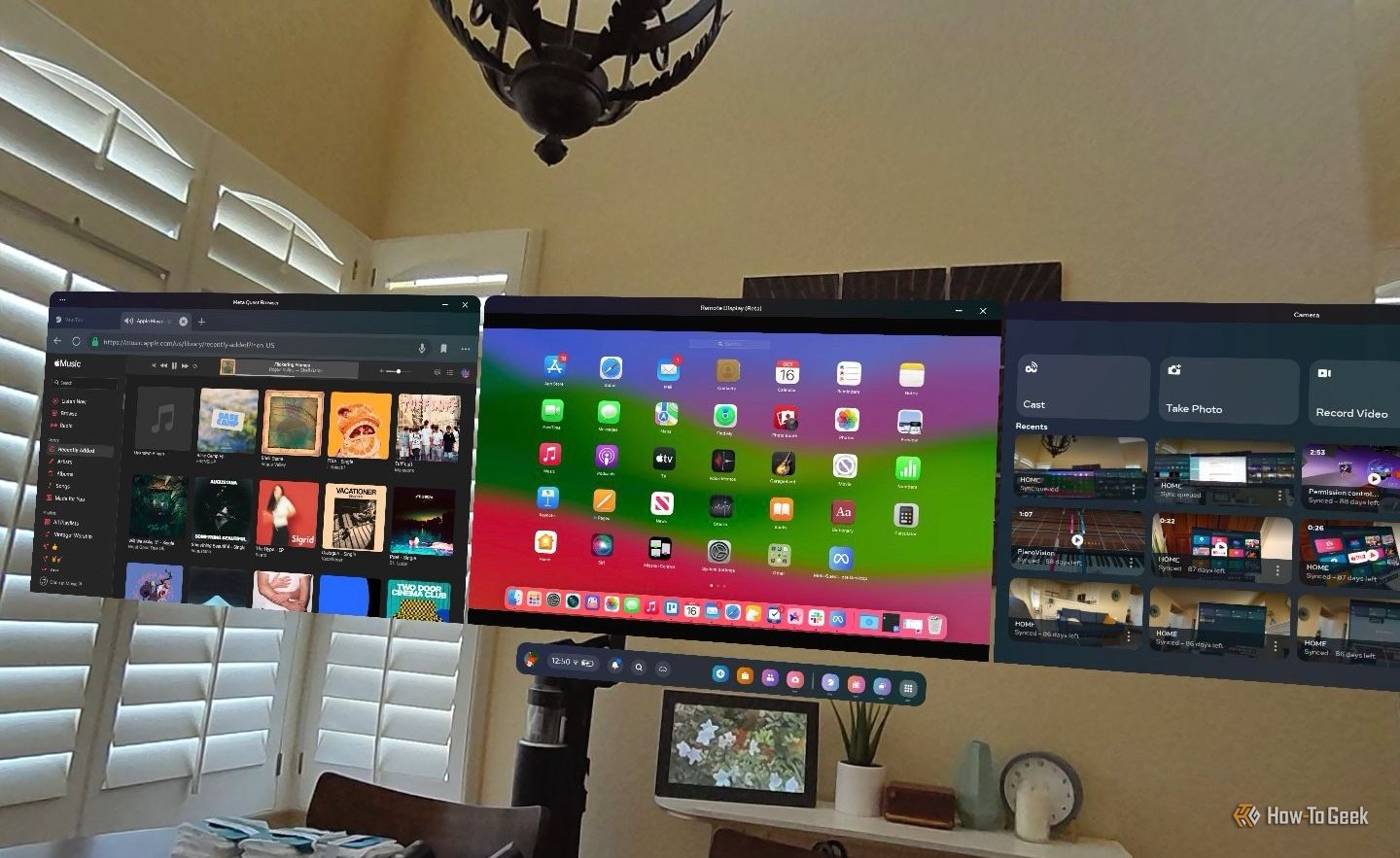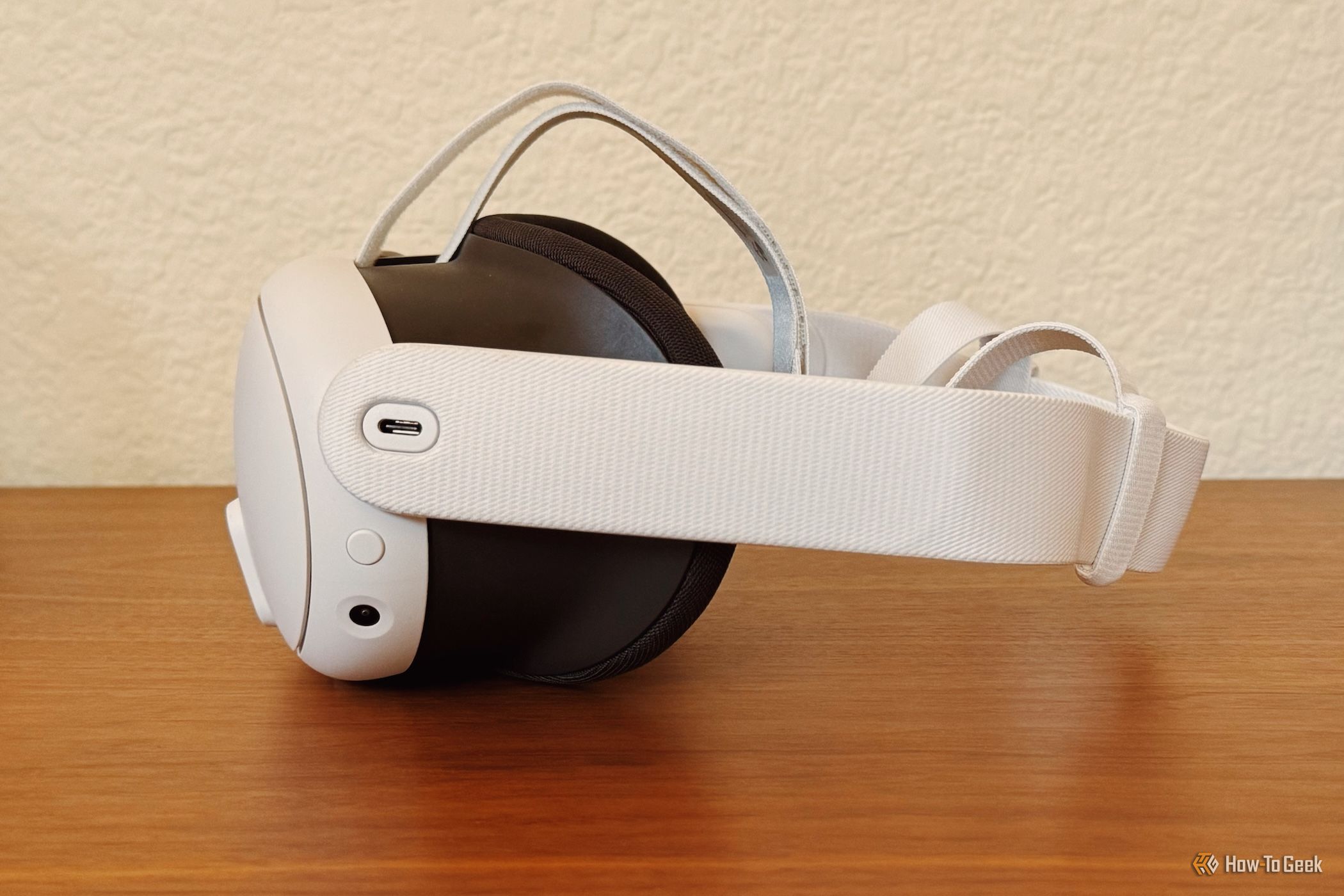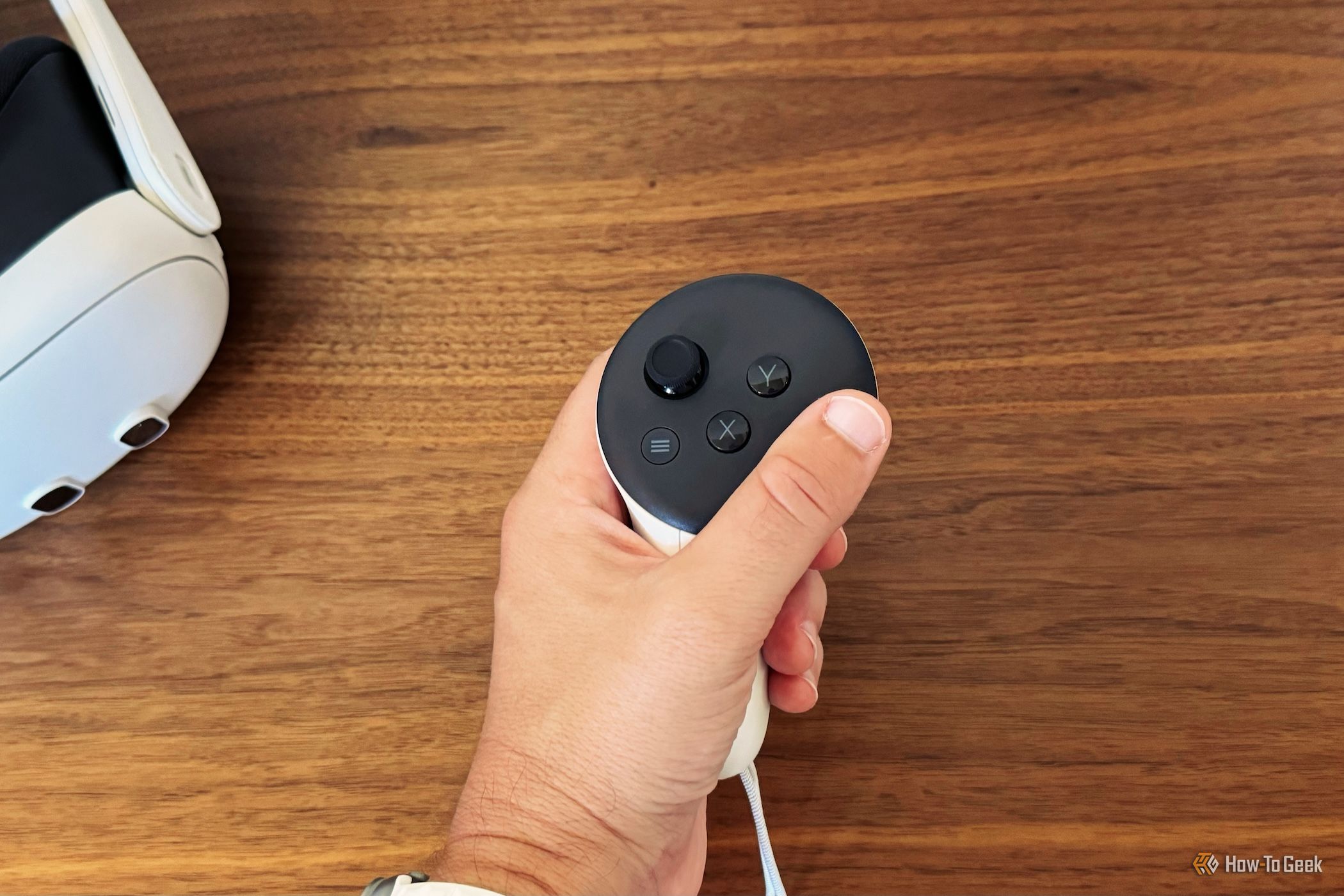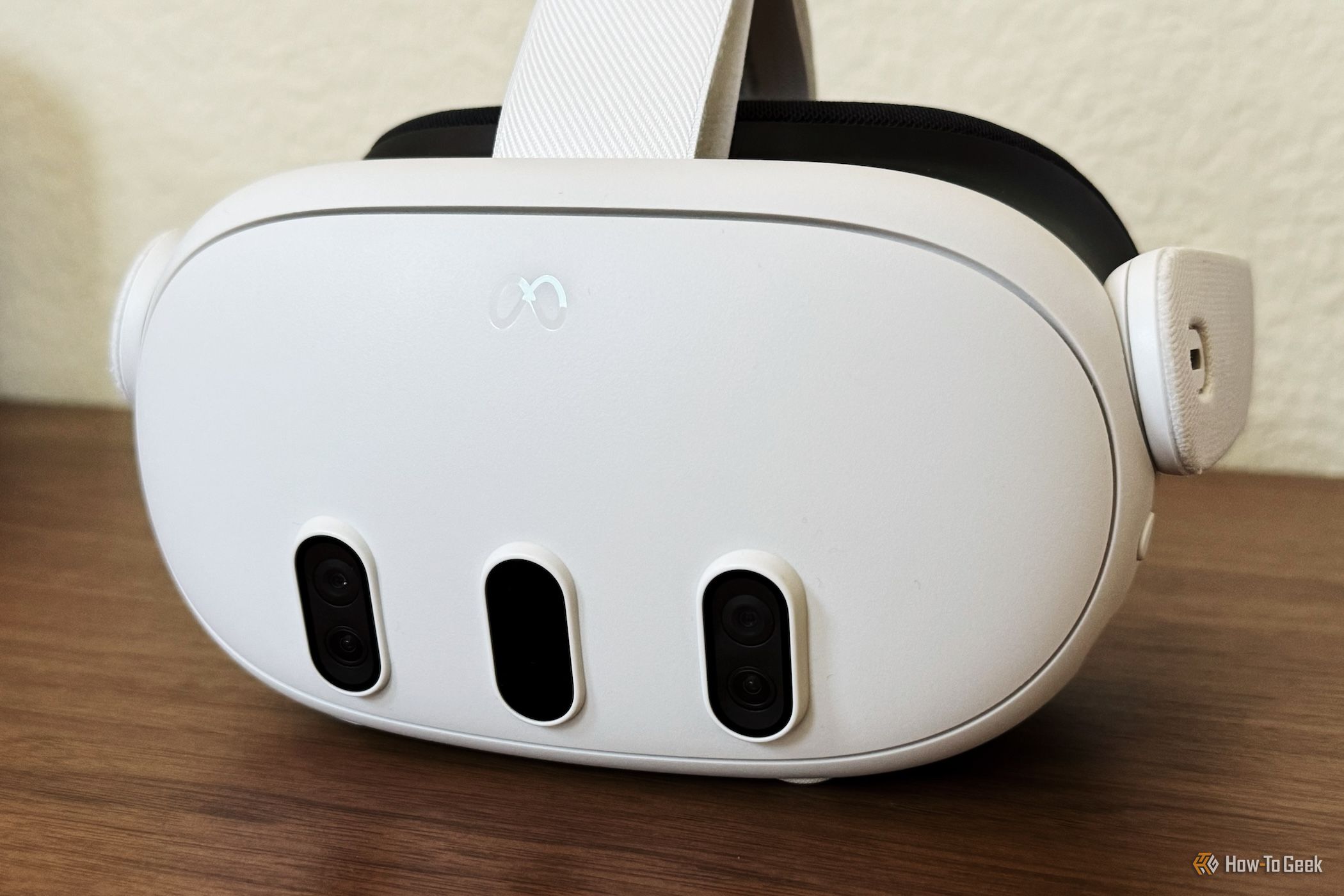Key Takeaways
- The Meta Quest 3 is an improved VR headset with better graphics and sound, but its mixed-reality capabilities are lacking.
- The design and fit of the Meta Quest 3 are refined, but the default head strap was uncomfortable for me.
- The Meta Quest 3 offers a mixed-reality experience with some impressive demos, but the VR apps and games will still be the main draw.
The Meta Quest 3 is an excellent VR headset, but only a mediocre mixed-reality device. That is, this product’s upgrades over the previous Quest 2 made existing virtual reality apps and experiences a lot better, just by improving the graphics and sound. The flip side is that the better cameras and depth sensors which improved passthrough video made me realize the Quest 3 wasn't foundationally built for mixed reality from the ground up.
It was the taste of the few mixed-reality demos that really made me crave more of those interactions. But too often apps and experiences were VR or bust. The Quest 3 as a standalone VR headset is potentially worth its higher $500 starting price, but it’s also certainly a big tease when it comes to what the future of this technology holds.
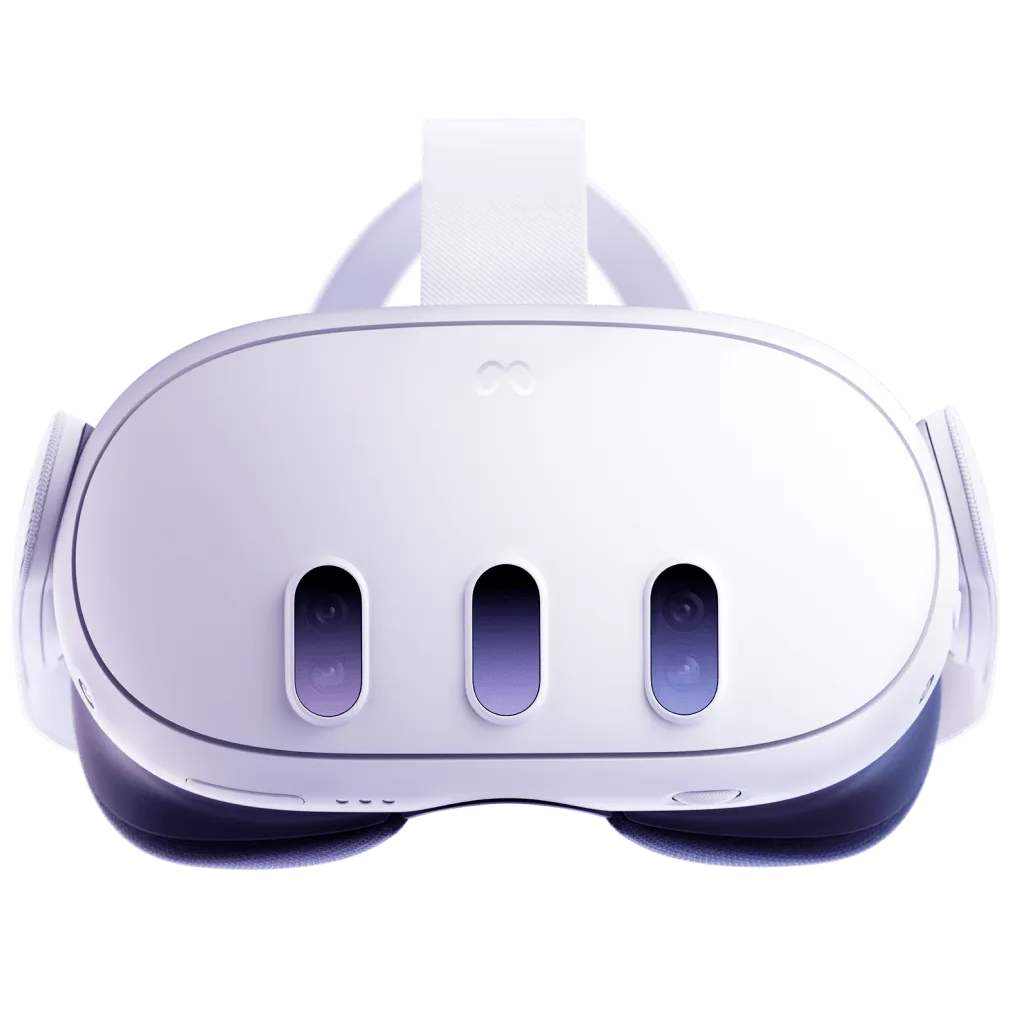
Meta Quest 3
The Meta Quest 3 improves on the Meta Quest 2 in every way, while adding brand-new mixed reality capabilities thanks to advanced full color external cameras.
- Resolution (per eye)
- 2064 x 2208 (pixels per eye)
- Storage
- 128GB or 512GB
- Connectivity
- Wi-Fi 6E
- Battery Life
- Up to 2.2 hours on average
- Audio
- Integrated stereo speakers with 3D spatial audio
- Weight
- 515g
- Refresh rate
- 72Hz, 80Hz, 90Hz, 120Hz (experimental only)
- Processor
- Snapdragon XR2 Gen 2
- RAM
- 8GB
- Field of view
- 110 degrees horizontal and 96 degrees vertical.
- Passthrough
- 2 RGB Color cameras and depth projector
- Headset and controllers have been refined over Quest 2
- Better graphics and sound
- Color passthrough video is great
- Default head strap was uncomfortable
- Increased base price makes it more of a commitment
Design and Fit of Meta Quest 3
The Quest 3 headset is more refined than the Quest 2, but I still found it to be uncomfortable on my head out of the box. Primarily, it was the default headstrap that I hated. I tried Meta’s Elite Strap, and although its $70 price tag makes it hard to stomach, I found it made the Quest 3 dramatically more comfortable to wear for long periods of time.
If you had issues with the Quest 2 headband, the one that comes on the Quest 3 probably won’t be any better for you. Additionally, it felt a little harder to tighten and loosen than the previous one. I would recommend trying a third-party headband to save a few bucks over the Elite Strap though.
The Quest 3 headset is slimmer, but didn’t feel any less bulky while wearing it. It might be easier to pack away somewhere, but its 0.5-ounce weight gain over the Quest 2 kept me from forgetting it was on my face.
There’s nothing fashionable about the look of the Quest 3 while it’s on someone’s face. The new black ovals that grace the front of it are purely in service of the much better video passthrough to see your surroundings. Make no mistake, seeing your room is way better.
If the Quest 2 headset was the first half of “Wizard of Oz,” then the Quest 3 is the second half. The experience is night and day different.
For one thing, I could glance at my Apple Watch and actually read the time while wearing the headset. I could hold my phone up and navigate through it, too.
The color passthrough is very helpful, but it’s not perfect. There was warping around some objects, and every once in a while, I saw the video spaz out when I carried something, like a plate, in my hand.
Getting Used to the Mixed Reality of It All
At first, the video feed of my rooms felt a little surreal. Jumping into a completely virtual world was more familiar. Slowly, though, I did get used to continually seeing parts of my room and had less desire to enter virtual reality apps. I wanted the mixed reality experience the whole time.
“First Encounters” is a killer game demo for mixed reality. A spaceship breaks through the ceiling and lands somewhere in the room. Multiple times it landed on an object, like a couch or coffee table, which made its effect even more convincing. Then little Koosh balls followed, breaking through the walls. The game's objective is to zap as many of them as possible in the allotted time. This game worked great, but it was short. After playing it a couple of times, its appeal dwindled.
The second, “You gotta see this,” app is “Piano Vision.” It was able to put notes over all the keys of my real, physical, piano, and then show me when to play each note to play a song. The notes floated toward me, “Guitar Hero” style, and then I played them on the piano in my living room.
It's certainly a futuristic app. It still had its issues, though, as I had to re-map my room to trick the headset into allowing the piano against the wall inside the boundary area. It took work, but it was fun, nevertheless.
"Les Mills XR Bodycombat" dips its toes into the mixed reality space by making the part of the room in front of you completely virtual, but then allows the rest of the room to be visible around you. This is similar to a new update for “Smash Drums,” although that app still feels more immersive without being isolating. "Smash Drums" makes drumming incredibly satisfying, whether in virtual or mixed reality, by the way.
When the MR experiences to try dried up, I went through dozens of casual VR games. Most had already been available for the Quest 2 and now simply look better on the new headset. “Fruit Ninja” and “Walkabout Mini Golf”? Yup, the cartoon-like animations are smoother and more visually appealing on the Quest 3.
“Epic Roller Coaster” has probably been the game to test people’s nausea level in VR the most over the years. Maybe unsurprisingly, the better graphics make riding the rails more convincing and even more realistic.
Games are still VR's main draw and will probably be for at least the next few years. My kids only saw the Quest 3 as a game console and nothing more.
But since I’ve never been more than a casual gamer, I found my real enjoyment in the fitness experiences. Although there are plenty of fine apps available, “Supernatural” continues to be the go-to workout experience. The better graphics on the Quest 3 level up the breathtaking nature environments.
With the Quest 2, the jagged lines and less sharp visuals, made me feel like I constantly needed to readjust the headset. But now, the increased clarity in “Supernatural” and other experiences have taken that strain away and allowed me to focus on the content more.
Productivity in VR: Does Quest 3 Do Spatial Computing?
I sat at my dining room table, with only a keyboard and trackpad in front of me, and typed part of this review in a window, inside the Quest 3 headset. I used Meta’s Remote Desktop app, which installed pretty quickly on my M2 MacBook Air.
While this isn’t really a comparison of what Apple is going for with its claim of spatial computing, I was able to have three windows open: A Google Docs page open on the remote desktop, a Meta Browser window signed into Apple Music, and the Camera app.
More than anything, I was curious if doing my normal work was possible on the Quest 3 since it wasn’t really on Quest 2, with that device’s non-existent mixed reality. It was possible, but it took a little too much effort.
What kept the Meta Quest 3 from truly functioning as a spatial computer was that most of the apps wanted to be completely immersive. I couldn’t open the MLB app to check in on the scores; it would have consumed my whole field of view. Similarly for the Meta Quest TV app. Once I clicked a video, I was swept away to an all-encompassing 360- or 180-video.
The three windows I was able to open could only slide horizontally next to each other. I couldn’t stack them vertically or do anything fancy.
There was nothing about using the Remote Desktop app, which needed my Mac to be left on, that would have been better than just bringing my laptop down to the dining room table. I doubt I’ll be doing much more writing inside the Quest 3 any time soon. While the resolution was passable for text, it wasn’t worth the hassle.
Using my Mac in the headset did provide a little bit of privacy, but if that’s the only thing you’re after, you might want to look at some kind of projection glasses to accomplish that objective.
No Battery Pack Needed
Mark Zuckerberg and others, on stage at Meta Connect, subtly jabbed Apple about its Vision Pro headset being connected to a battery pack when the Quest 3 doesn’t need to be tethered to one.
Using the Quest 3 in a completely standalone manner was great, but that didn’t mean it ran forever. I would get somewhere in the ballpark of two hours' worth of use per charge. Often, that meant I didn’t get much time with it if one of my kids was using the headset before me. I would need to charge it, at least a little bit, to have enough time for an extended “Supernatural” workout.
There were also plenty of times I had a power cable or battery pack connected to the USB-C port on the headset when I was using it stationary.
For people who want to live in the headset for more than a couple hours at a time, I would recommend the Quest 3 Elite Strap with Battery, which advertises an additional two hours of use.
If I wasn’t begrudgingly sharing the headset between myself and two kids, the two-hour runtime would be more than enough per session. I rarely wanted it on my face at any one time for longer than that.
Meta Quest 3 Price and Availability
The Meta Quest 3 is available now and starts at $499.99 for 128GB of storage. The price jumps to $649.99 if you want 512GB of storage.
Meta Quest 3 vs. Apple Vision Pro
I can’t speak to any specifics between the Quest 3 and Apple Vision Pro, but after using Meta's latest headset, I feel like I do at least have a little better insight, philosophically, about where these devices are going.
Using the Quest 3 with a remote desktop to bring my laptop into a personal digital space was intriguing. The Vision Pro would need to do a significantly better job with comfort and visibility to make it compelling to work in mixed reality daily.
More than anything, I realize how important the mixed reality component is or will be to VR headsets. There will probably always be some intriguing reasons to be completely secluded in a virtual world, so that part won’t disappear. But developers will have to find clever ways to build apps that fit into the spaces where people live.
I haven't even tried Apple's eye-tracking for moving around its interface, but there's a good chance it will be a better experience than the Quest 3's rudimentary hand-tracking. Pinching and dragging to scroll or trying to move a cursor and pinch to click a target was tough. The Quest 3 controllers were great when they were used, but it was the back and forth of using them most of the time, but not all the time, which was a bit annoying.
Should You Buy the Meta Quest 3?
Big picture, I would categorize tech products in three ways: products made for enthusiasts, products that pull people in and make them enthusiastic, and devices so universal they spread rapidly with mainstream consumers.
In hindsight, the Quest 2 was a headset made exclusively for enthusiasts. It was a modern VR headset for people ahead of the curve. Now, in the dawn of the Meta Quest 3, it seems like it could be one that expands the company’s reach and brings more people into the world of virtual and mixed realities.
If the proposition of better graphics and a few extended experiences are enough to excite you about the Quest 3, then you should probably buy it sooner rather than later. It’s much more polished and well-rounded than the $300 Quest 2.
If you’re mostly tempted by the mixed reality aspects of the Quest 3, I would wait to make a buying decision. Wait for a few more compelling experiences to spend your time on or until the device goes on sale for the first time. Giving the mixed reality side of things a little time to bake and shake out might be a wise choice.

Meta Quest 3
The Meta Quest 3 improves on the Meta Quest 2 in every way, while adding brand-new mixed reality capabilities thanks to advanced full color external cameras.
- Resolution (per eye)
- 2064 x 2208 (pixels per eye)
- Storage
- 128GB or 512GB
- Connectivity
- Wi-Fi 6E
- Battery Life
- Up to 2.2 hours on average
- Audio
- Integrated stereo speakers with 3D spatial audio
- Weight
- 515g
- Refresh rate
- 72Hz, 80Hz, 90Hz, 120Hz (experimental only)
- Processor
- Snapdragon XR2 Gen 2
- RAM
- 8GB
- Field of view
- 110 degrees horizontal and 96 degrees vertical.
- Passthrough
- 2 RGB Color cameras and depth projector

